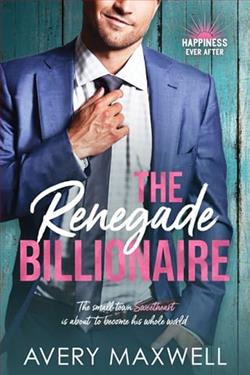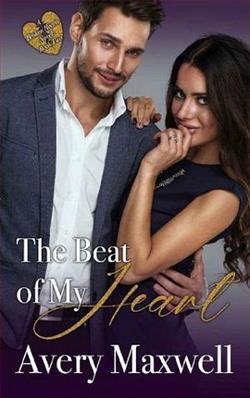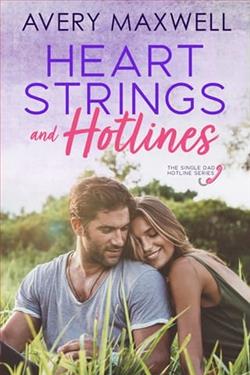Page 50 of Somewhere Without You
“I’m, uh. . . partially blind,” I blurted out. “He helps me read.”
“He helps you read?” she repeated, unamused.
I nodded. “It sounds crazy, I know. But it’s true. Winston can read just about anything. Poetry, romance. . . even fantasy.”
The woman stared at me, stone-faced, as if trying to decide whether I was dangerously unwell or just deeply annoying.
“Right,” she said flatly. “And does he have his library card?”
I opened my mouth, half-ready to double down on the lie, but the edges of her mouth twitched—just slightly. Not quite a smile, but not full disdain either.
“He’s working on it,” I said, letting a small grin slip through.
She exhaled sharply. “You’ve got ten minutes. Keep him on a leash and off the furniture. If I hear so much as a bark, you’re both out.”
Winston sneezed in response. But before she could reconsider, I turned to leave—then paused.
“Where can I find books on the Civil War?” I asked, glancing back over my shoulder.
She eyed me for a moment, then nodded. “Head down that hallway and take a right. You’ll find about four shelves dedicated to that section. Let me know if you’re looking for something specific.”
We made our way down the main aisle, paws tapping softly on the tile. The library was a cathedral of stillness—high ceilings, soft lighting, the faint rustle of pages turning. A place where people came to disappear into stories that weren’t their own.
Soon, rows of books stretched out before me, their titles promising stories of battles and bloodshed. I let my fingers trail along the spines, the raised lettering cool against my skin.
Confederate Strategy. Life in the Trenches. Charleston Under Siege.Each one caught my eye, stirring something I couldn’t quite name—longing, maybe. Or regret. Whatever it was, it sat heavy in my chest.
I chose all three and carried them to a quiet corner. The chair creaked softly as I sank into it, and Winston curled over my feet like a warm blanket.
The first book read like a textbook, all dates and generals and maps that blurred together before I reached the second chapter. I flipped a few pages, hoping for something to catch, but it was all logistics and fort locations—more about troop movement through Virginia than anything remotely personal.
Winston shifted with a thump beneath me, as if to say,Seriously? This is what we came for?
The second book wasn’t much better. Judging by the cover, it promised grit and heartache, but it mostly detailed rations, the weight of wool uniforms in the West Virginia heat, and how many men died of dysentery. Important, sure, but nothing that stirred anything in me beyond a yawn.
I leaned back in the chair, exhaling hard through my nose. Sunlight slanted through the high windows, catching the dust in lazy spirals. For a moment, I wondered why I’d bothered coming at all.
Then I reached for the third book.
It was older than the others, bound in faded navy cloth with no dust jacket and only it’s title etched in gold on the spine.The moment I cracked it open, something shifted. The pages smelled older, mustier. I turned to a chapter halfway through, and began to read.
It wasn’t just history, it read like real voices. Real people. A woman describing the way the cannon fire rattled the china cabinets. A boy, no older than twelve, tasked with carrying messages between soldiers. Letters written in trembling hands to husbands who never came home.
Something about the voices in the pages pulled at me. I could see it all.Feeleverything. The soot. The fear. The way time bent under pressure.
The pages fluttered under my fingertips. I turned another—then stopped.
There, pasted crookedly between two brittle pages, was a black-and-white photograph. A group of Union soldiers stood in tight formation, posed in front of a canvas tent. Underneath, their names were listed neatly, just below the photo.Samuel S. Johnson. Patrick M. Meyers. Finnigan J. Walker.
I blinked. That name. My heart skipped.
Finnigan.
It echoed in my head, pulled straight from James’s last letter. I stared at the man in the photograph—young, with a crooked smile. His hand rested lightly on the shoulder of the man beside him.
My gaze shifted and my heart hammered hard against my ribs.
The soldier next to him was striking—dark hair, a neatly tailored uniform, and a calm, unwavering expression. Something about his eyes felt unsettlingly familiar.















